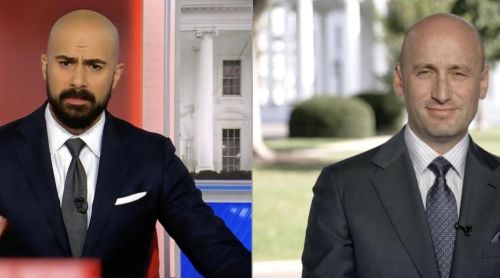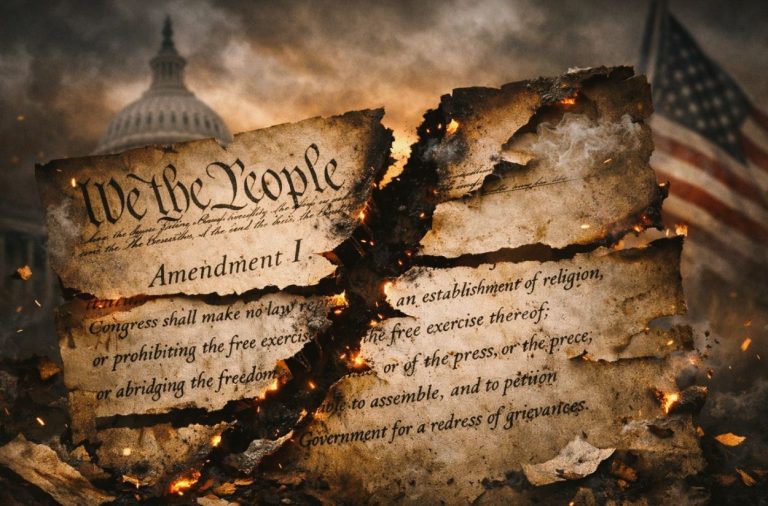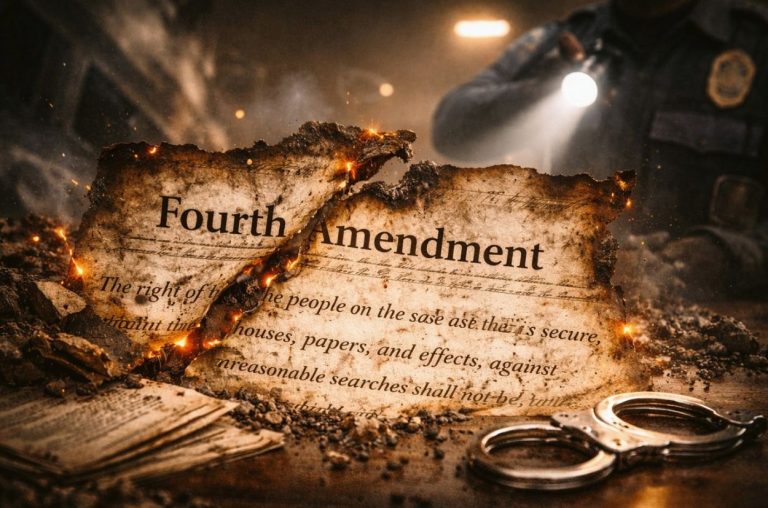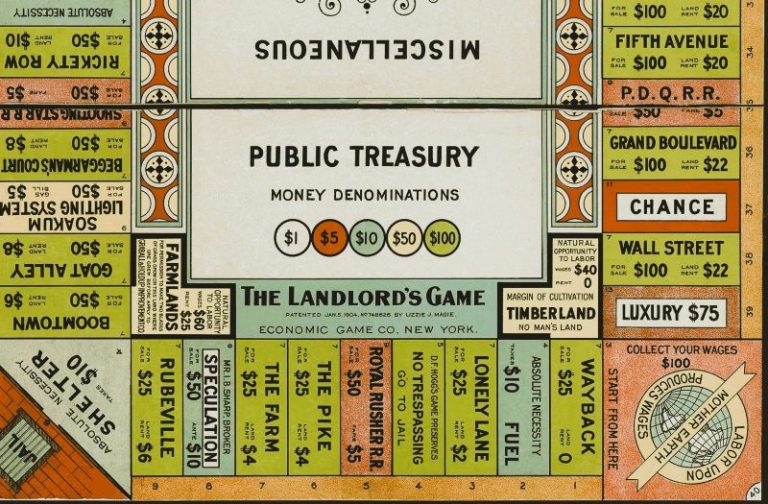

Stephen Miller’s two-second hesitation on live television might have seemed trivial. But in the context of a presidency openly testing the limits of power, that pause carried meaning.

By Matthew A. McIntosh
Public Historian
Brewminate
Introduction
During a live CNN appearance, Stephen Miller invoked a phrase that jolted constitutional scholars and political observers alike: “plenary authority.” Miller’s position as White House Deputy Chief of Staff for Policy and Homeland Security Advisor makes his remarks hair-raising. In defending Donald Trump’s power to deploy the National Guard without state consent, Miller began, “Under Title 10, the president has plenary authority, has ….” before freezing mid-sentence and disappearing from the screen. CNN later attributed the interruption to a “technical issue,” but the clip quickly spread across social media as viewers accused Miller of saying the quiet part out loud – that Trump’s second term rests on the claim of virtually unlimited executive power.
The term plenary authority isn’t a throwaway phrase. In constitutional law, it refers to absolute, unqualified power over a domain, the kind of authority no American president has ever lawfully possessed. Yet Miller’s slip, and the legal theory it implies, arrives at a moment when the Supreme Court’s July 2024 ruling on presidential immunity has already expanded the boundaries of executive protection. That decision declared presidents enjoy absolute immunity for “core constitutional acts” and presumptive immunity for others performed in an official capacity. Critics warned it places the United States “one step closer to a king.”
Against that backdrop, Trump’s own rhetoric about being a dictator takes on sharper meaning. Taken together, Miller’s stumble, Trump’s language, and the Court’s new doctrine form an unsettling constellation: the public normalization of an idea once confined to authoritarian fantasy, that a president could rule with plenary power.
What “Plenary Authority” Means (Legally and Historically)
When Stephen Miller invoked “plenary authority,” he borrowed a term that has a precise and explosive pedigree in American law. The phrase, derived from Latin plenus (“full”), refers to absolute, complete, and unqualified power over a specific domain. In U.S. constitutional practice, however, it has traditionally applied to Congress (for example, Congress’s “plenary power” over immigration and Indian affairs) not to the president. Cornell Law’s Wex defines plenary power as “complete power over a particular area with no limitations.”
Historically, courts have used the term only in narrowly defined contexts. The Supreme Court has described Congress’s immigration power as “plenary,” yet even that is constrained by constitutional guarantees of due process. The executive branch, by contrast, operates within statutory limits: the Insurrection Act, the Posse Comitatus Act, and the War Powers Resolution all impose checks on the use of federal troops or emergency powers.
In practice, claiming “plenary authority” for the presidency implies an executive right to act without judicial or congressional oversight, a notion foreign to the American system. Legal scholars at Boston University recently warned that such rhetoric signals “a shift from the idea of constrained governance to one of personal rule.”
For many analysts, that makes Miller’s words less an academic error than a window into the administration’s constitutional ambitions. If Miller truly meant plenary authority, it would describe powers more fitting for a monarch than for a president bound by law.
Trump and the “Dictator” Rhetoric
The phrase plenary authority might have sounded abstract had it not echoed the president’s own language. Donald Trump has repeatedly flirted with the idea of personal rule, testing how far his base will follow. Speaking at a campaign stop in Cedar Rapids last year, he quipped, “You know what? Maybe we’ll be a dictator, just for one day.” The crowd roared. When pressed by Sean Hannity afterward, Trump doubled down that he didn’t want to be a dictator, “Except for day one. I want to close the border, and I want to drill, drill, drill.” To critics, it was a revealing moment. To supporters in the crowd, and in the online comment sections that followed, it was a cheer line, not a warning.
Polling over the summer found that roughly four in ten Republican voters agreed the country “needs a strong leader who can ignore the rules to set things right.” That data point alarmed political scientists who have tracked the erosion of democratic norms worldwide.
Inside Trump’s circle, aides have increasingly used language that normalizes that vision. Miller and a small team of legal strategists have been developing a plan to institutionalize Trump’s strongman image, reframing it as decisive leadership rather than autocracy.
Together, these signals (Trump’s public musings, Miller’s legal framing, and polling that rewards authoritarian talk) suggest more than rhetorical bravado. They outline a political theory in motion: that a presidency unbound by institutional restraint could be not a danger, but a virtue.
The Supreme Court on Immunity and the Slippery Slope
Miller’s claim of plenary authority, as previously stated, lands in a radically altered legal landscape. In July 2024, the U.S. Supreme Court’s 6–3 ruling in Trump v. United States granted presidents absolute immunity for what it called their “core constitutional functions” and presumptive immunity for all other official acts. Only conduct deemed private would remain subject to criminal prosecution.
Chief Justice John Roberts wrote that courts must not sit in judgment of a president’s discretionary duties, a line that critics argue creates the very thing the Framers feared. Justice Sonia Sotomayor, in dissent, warned that the decision “makes a mockery of the principle that no one is above the law.”
President Biden called the ruling a “dangerous precedent.” His attorney general, Merrick Garland, added that it would “complicate any future effort to hold presidents accountable for abuses of power.”
Legal experts quickly noted the implications: if a president’s actions under the guise of national security, border defense, or civil unrest are automatically considered core functions, then almost any assertion of executive authority could fall within the immunity shield. That logic essentially invites a president to test the limits of his power, knowing the courts may never reach him.
Already, several ongoing cases challenging Trump’s federal interventions, from mass detentions during border operations to the recent deployment of active-duty troops under the Insurrection Act, have been paused while judges determine whether the immunity ruling bars prosecution entirely. The result is a constitutional fog: actions that might once have been plainly illegal now fall into a gray zone that only the Supreme Court itself can define.
For scholars, the overlap between this immunity doctrine and Miller’s “plenary authority” rhetoric is unmistakable. “If the president can’t be criminally prosecuted for official acts and claims those acts are plenary,” said one law professor, “then we’ve effectively erased the last line between a constitutional republic and a personal regime.”
Is Miller’s Slip an Admission of Intent?
For some observers, Stephen Miller’s on-air stumble was more than a moment of rhetorical overreach; it was a window into how the current White House envisions executive power. Miller has been quietly leading a small group of legal and policy advisers tasked with developing frameworks for what one insider described as “totalized executive action” — the ability of the presidency to implement sweeping domestic and security measures without prior congressional authorization.
In that light, his invocation of “plenary authority” may not have been accidental. Former Justice Department officials note that Miller has long advanced expansive interpretations of federal power, particularly in immigration and border enforcement. During Trump’s first administration, he pushed legal theories allowing the president to suspend refugee programs unilaterally and redirect military funds for border wall construction, both of which faced court challenges.
Now, within the new legal environment created by the Supreme Court’s 2024 immunity ruling, such theories may face fewer barriers. “He’s saying out loud what many in the administration are already thinking,” said a former U.S. attorney. “If you can’t be prosecuted for official acts, and you define everything as an official act, you have government by decree.”
White House spokespeople have dismissed the controversy as “a partisan misreading of a technical term,” insisting the president “remains committed to constitutional process.” Yet the administration’s actions have fueled skepticism. Trump’s recent order federalizing certain state National Guard units under the Insurrection Act, citing “domestic security threats,” has drawn lawsuits from California, Illinois, and New York governors, who argue it exceeds statutory authority.
Taken together, Miller’s phrasing and the administration’s recent directives have convinced critics that the “gaffe” was, in fact, a moment of candor. He didn’t misspeak; he previewed the theory they plan to use.
Risks and Implications
The concept of plenary authority, coupled with a legal shield of presidential immunity, has set off alarm bells across the political and legal spectrum. Former officials from both Republican and Democratic administrations warn that the United States may be edging toward a form of executive supremacy unseen in modern history.
This isn’t just about Trump. If one president claims boundless authority and gets away with it, every president after him will be tempted to do the same.
The practical risks are immediate. A president asserting plenary power could:
- Bypass Congress to direct federal spending under the guise of national security.
- Use the military domestically with minimal judicial review, citing “public order” or “border integrity.”
- Order prosecutions or detentions framed as official acts immune from challenge.
Each of these possibilities tests the resilience of democratic institutions designed to prevent consolidation of power. Legal experts note that even if courts eventually strike down such moves, enforcement delays could allow sweeping actions to stand long enough to reshape political reality.
Governors and mayors are already preparing for that possibility. Several states have announced contingency plans to challenge or refuse participation in federally mandated law-enforcement directives they view as unconstitutional. Civil-rights organizations are building litigation teams ready to file emergency injunctions should the White House invoke “plenary authority” in future crises.
Beyond law and policy lies a cultural shift: a growing share of voters equating authoritarian decisiveness with strength. Americans exposed to “strongman” rhetoric are more likely to associate democracy with weakness and inefficiency, a pattern that historically precedes democratic backsliding.
As has been widely said, “When rhetoric like this goes unchallenged, it doesn’t just test the system; it teaches people to stop expecting the system to work.”
Conclusion
Stephen Miller’s two-second hesitation on live television might have seemed trivial: a clipped sentence, a frozen feed, a quickly forgotten glitch. But in the context of a presidency openly testing the limits of power, that pause carried meaning. By uttering “plenary authority,” a phrase that evokes rule without restraint, Miller gave public form to what many constitutional scholars fear is already an internal doctrine of this administration: that the presidency itself is the final arbiter of legality.
The timing could not be more consequential. With the Supreme Court’s immunity ruling redefining what counts as an “official act,” the line between lawful governance and personal command has blurred to the point of near-invisibility. Trump’s own words, joking or not, about being a “dictator” now read less as provocation and more as preview.
In democracies, power often expands not through coups but through language: words that make extraordinary authority sound ordinary, even necessary. “Plenary authority” is one of those words. It suggests decisiveness, order, control, until the day it is used to justify something irreversible.
The coming months will test whether America’s institutions still possess the will and independence to draw boundaries around a presidency that increasingly refuses to recognize them. For now, one truth remains: the Constitution endures only as long as those in power still believe they are bound by it.
Originally published by Brewminate, 10.10.2025, under the terms of a Creative Commons Attribution-NonCommercial-NoDerivatives 4.0 International license.


